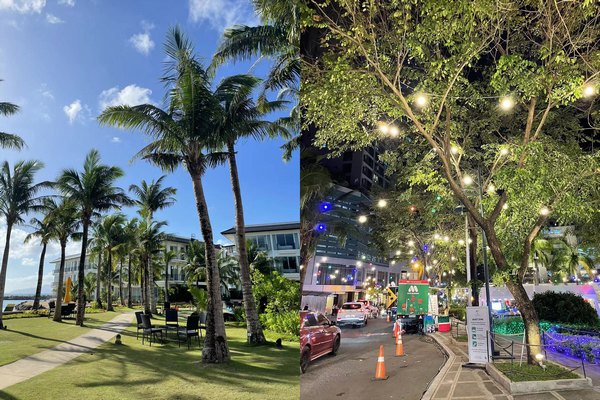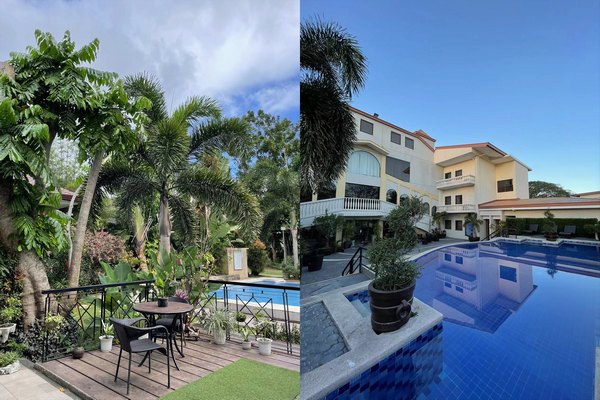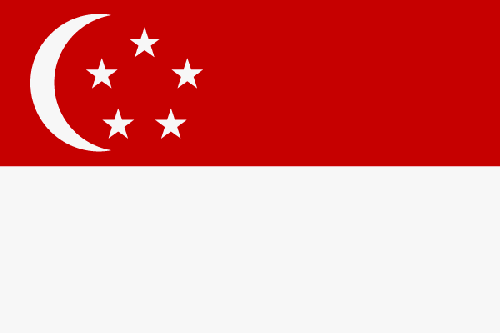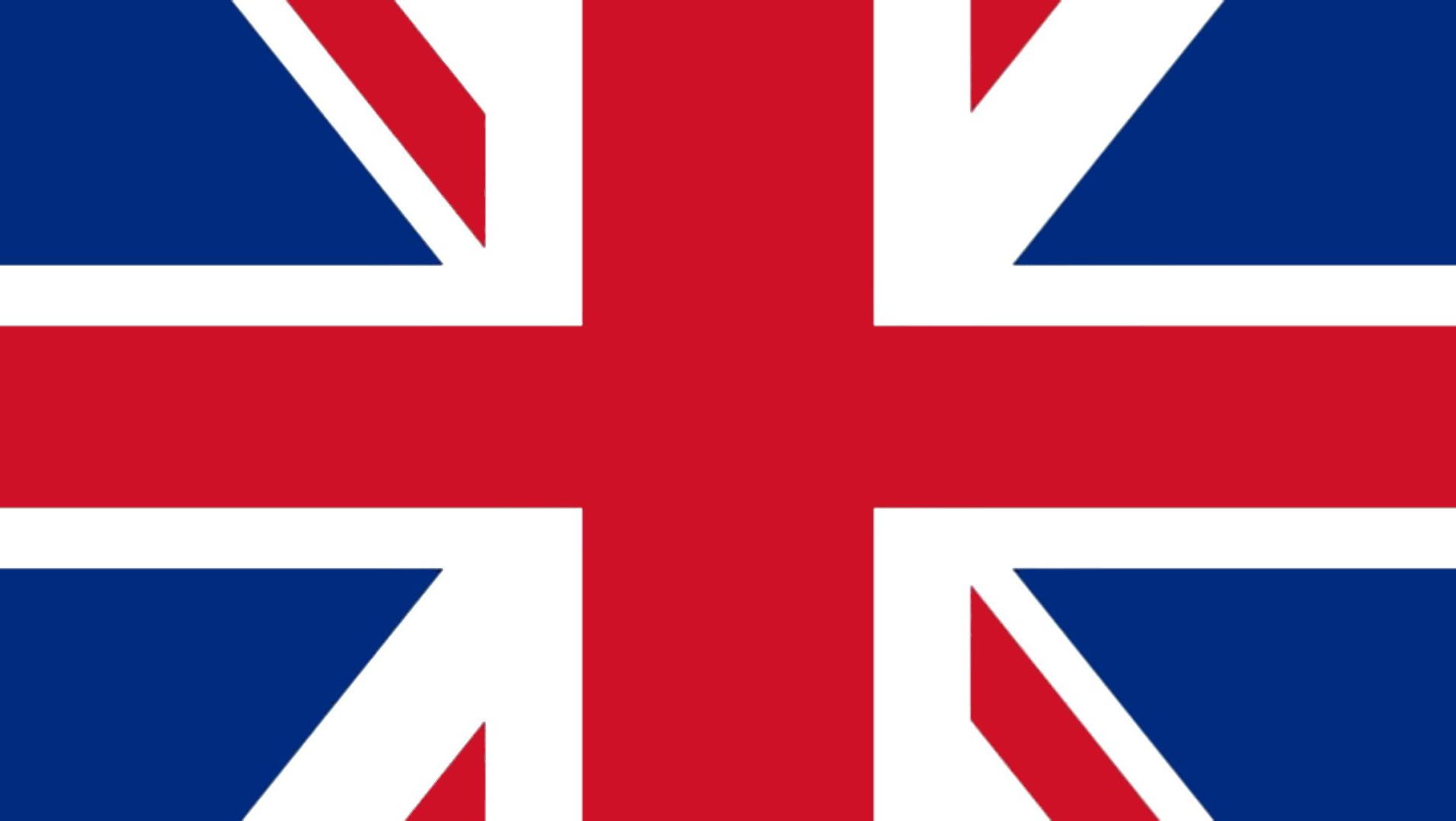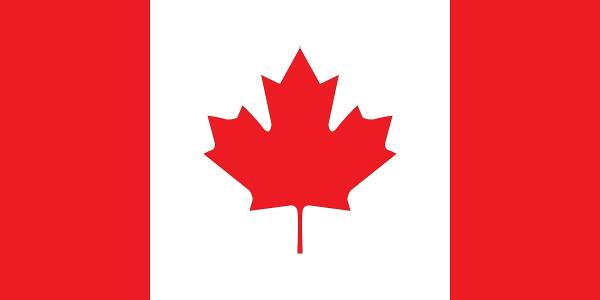口语表达最重要的是什么,想要说出一口流利的英语,词汇和句子的积累当然是少不了的。毕竟只有积累足够的句子和词汇我们才能更好的掌握和运用,而且雅思口语考试是比较有难度的一部分内容,更考验我们平日里的积累,那今天留小留小编就为大家带来了雅思口语常用词汇和句子的相关内容,感兴趣的小伙伴一定要看下去哦。
一、雅思口语常用词汇和句子
1. Get real!认清现实,别做梦了!
2. Chick 女孩
3. Man 哇塞!
4 .No way免探
5 .Have you lost it?你疯了
6 .Rip-off敲竹竿
7. Buck元
8 .Broke没钱
9. Window商店的橱窗
10. Drop-dead gorgeous棒极了
11 .Holy cow 我的天啊
12. Talk about 那真是
13.Hold it down小声点
14 .In fashion正流行
15. Burned up很生气
16 .Bug惹烦
17. push someone’s buttons惹火对方
18. Have a screw loose头脑有问题,短路
19 .It’s on me 我请客
20. Set foot in somewhere涉足与某场所
21. Yummy很好吃;味道不错
22. Hello!有没有搞错!
23. Dough钱
24. John马桶
25. Go to the bathroom上厕所
26. Hit大热门;最抢眼;最抢手
27. Green新手;没经验
28. Dirt闲话语言
29. Dirty joke黄色笑话
30. Bullshit鬼话连篇!
31 .Cop警察
32. Freeze!别动!
33 .Come down on someone责备;责骂;批评
34. Rag on someone责怪;责骂
35. Chicken out临阵退缩
36. Grounded被禁止;被罚不准
37. Bummer真倒霉
38. Let someone down令人失望
39. Up to no good惹事生非
40. Dweeb笨蛋;令人讨厌的人
41. Get lost迷路;走失了;走开
42. Zit青春痘
43. Hang out瞎混
44 .Hang out with...跟某人一起瞎混
45. Get on my nerves惹我厌烦;令我神经紧张
46. Clean up one's act好好表现;改善行为
47. Two thumbs up!非常好!
48. Hold your tongue!不要再说!
49. Take a nose dive直线下降
50. No-show失约;不来
51. Put up with something忍受
52. Bean brain蠢材;没脑筋
53. Big-mouth口没遮拦;大嘴巴
54. Red-hot红得发紫;抢手
55. Hardcore!很难的课程;帅啊!
56. Out of the blue毫无来由;不知从哪里冒出来
57. Scream热闹;有意思
58 .Corny陈腔滥调
59. Uh, oh!唉呀!糟糕!
60 .Brother!唉呀!帮个忙!拜托
下面我们来了解一下出现频率比较高的句子有哪些
1. How many pages did you end up with? 你的(报告)最后有几页?
依照大多数人的习惯, 「你的报告最后有几页」这句话通常会把它翻译成, "How many pages did you get finally?" 是不是啊? 但事实上如果是老美来说这句话, 他们会说的是, "How many pages did you end up with?" 也就是说, 当老美提到「最后」这个概念时, 他们通常用的是 end up with 这个片语. 所以如果你要说, 「看了那么多的房子之后, 我们最后还是买了湖边的那栋房子」就是, "After seeing so many houses, we ended up with buying the one on the lakeside."
所以 End up with 也有「最后有什么样结果」的意思, 再举个六人行 (Friends) 里面的例子, 有一次 Monica 问 Rachel 和牙医师约会的结果怎样? 她的回答就是, "We ended up having sex on his chair." (我们结果在他的椅子上发生关系) Monica 听了之后差点没昏倒. 我想大家不难从这几个例子当中发现, 在许多地方用 end up with 会比 finally 来得更为恰当.
2. That project turned out to be a big flop. 那个计划变成一个大失败.
讲到「变成...」这个动词, become 会是许多人唯一能想到的英文翻译. 所以这个例句许多人会翻成 "That project became a big flop." 对, 这样讲完全没错, 但各位下次不妨可以学老美用 turn out 这个片语来代替 become. 这样子这个句子就会变成 "That project turned out to be a big flop." 听起来有没有比较顺口呢?
另外老师上课时在讲到数学运算时也常说 turn out 例如最常见的, "If you multiply the first equation by 2, the two equations will turn out to be exactly the same." (如果你把第一个式子乘以 2, 这两个式子就会完全一样.)
3. I ate salad, soup, steak and pudding. On top of that, I drank two cups of coffee. 我吃了沙拉, 汤, 牛排和布丁, 除此之外, 我还喝了两杯咖啡.
讲到除了什么什么之外, 以前老师教我们的都是 besides, in addition to (包含的除外), 不然就是 except (不包含的除外, 详见注1) 所以这个例句一般人的讲法会是, "Besides/In addition to salad, soup steak and pudding, I drank two cups of coffee." 但除了 besides/in addition to 之外, 老美也很喜欢用 on top of that 这个片语. 而且当他们在讲 on top of that 都还会特别强调加强语气. 通常能表现出一种夸大的语气来吸引听者的注意. 比方说吧!. 「她的未婚夫不但有五栋房子和二部豪华轿车, 银行里还有十亿元的存款」在这里重点是最后的十亿元存款, 所以句子这么造, "Her fiance has five houses and two luxury cars. On top of that, he has 1 billion dollars in the bank."
4. We're gonna have two parties back-to-back next weekend. 下周末我们将连续有两场派对.
「连续」这个概念在英文中的说法有很多. 最简单的可以用单一副词 consecutively, 例如例句就可以翻成 "We're gonna have two parties consecutively next weekend." 当然你也可以用片语 in a row 或是 back-to-back 来替换这个 consecutively. In a row 原意是排成一列, 例如 three days in a row 就是三天排成一列, 也就连续三天的意思. 而 back-to-back 字面上则是「背贴背」, 当然也有连续的意思在内. 所以比方说期末考到了, 哇咧, 明天居然连续考三科. 这个用英文说出来就是 "We'll have three tests in a row tomorrow." 或是 "We'll have three tests back-to-back tomorrow."
5. I have another class right after this. 我随后(下一堂)还有课.
我刚来美国时常被诸如, 「我随后 (下一堂) 还有课」, 「下一辆公车随后就到」这样的句子困扰. 原因是我觉得「随后」如果翻成 immediately (马上) 似乎不太对, 但又想不出什么其它替代方案. 后来我才慢慢了解原来 「随后」就是用 right after 或是 right behind. (单指空间上的之后) 所以要是上课时坐隔壁的不帅的男生问你, "Have a cup of coffee with me after class?" (下课后一起去喝杯咖啡吗?) 拒绝他就是, "I'm sorry, but I have another class right after this." (很抱歉耶, 我下一堂还有课.) 或是像有时候公车挤不上去, 司机伯伯就会告诉我, "There is another bus right behind this one." (下一辆公车随后就到.)
提醒各位, right 在英文中常常有「马上」的意思, 例如, "I will be right back." 就是我马上回来的意思. 所以如果你去掉 right 单说 "I have another class after this." 当然也可以, 但意思会变成, 「我之后还有课」(也许是下一堂, 下二堂有课不一定), 但如果是用 right after this class 则很明确地指出了是「下一堂」.
6. Knock it off. I can't stand this anymore. 停止吧! 我再也不能忍受了.
「停止」这个动作在英文中有许多的表示方式, 例如最简单的 stop 就是一例, 但是除了简单的 stop 之外, 老美也喜欢说, "Knock it off." 或者是 "Cut it out." 例如看到两个人在打架, 你可以赶快说, "Knock it off" 或者是 "Cut it out." 来劝他们快点住手.
Knock off 这个片语还有许多其它的用法, 像是台风把高压线给吹掉了, 在这里你就可以说, "The typhoon knocked the power line off." 或是上数学课时老师说把 x 给消去, 这里的消去也可以用 knock off 喔. 造个句子就是, "If you knock off x in this equation, you will end up with the final solution." (如果你把 x 从这个式子给消去的话, 你就会得到最后的答案.)
7. How can we get through this (situation)? 我们要如何度过这个(难关)呢?
讲到度过某个困难的时刻, 或许你的直觉反应是要用 pass 或是 overcome. 但是另外还有一个你想不太到的说法: get through 或是 pass through. 例如有一次我搭一个老美的车因超速被警察拦下来, 他就很紧张地说, "How can we get through this?" (结果最后他还是无助地被警察伯伯开了一张罚张.) 或是当有人遭逢不幸, 我就会安慰人家说, "No matter what's going to happen, we will get through this hard time together." (不管再来会发生什么事, 我们都要一起过度难关.)
注意一下如果是要讲的是你已经遭遇过的事情, 则过去式 got through 和完成式 have been through 同样好用. 例如期末考好不容易结束了, 你可以松口气说, "I'm so glad I got through finals week." (我很高兴终于考完了.) 或是 "I'm so glad I have been through finals week." (强调"已经"考完了.)
8. We have to work this problem out by tomorrow. 我们必须在明天之前解决这个问题.
讲到 work out 这个动词片语, 它在英文里的用法可是千变万化的. 首先例如解决问题, 老美除了说 solve 之外, 也超爱用 work out 的, 所以解决一个问题你不但可以说 solve a problem, 还可以说 work a problem out. 不过有时候还要看看上下文的意思, 如果我说, "Let's work out some plans for the holiday." 这里的 work out 翻成解决当然不太恰当, 所以你可以把它翻成「作出来」. 整句的意思就是, 「让我们为假期拟定一些计划」
其实 work out 不单单可以代表「解决」 (solve) 的意思, 或是「作出来」的意思. 它还可以代表「成功」(succeed). 例如你写了一个程式, 但你不知道能不能成功地执行, 你就可以说, "I don't know if this program is gonna work out." (我不知道这个程式会不会成功.) 或是男女朋友交往, 但你觉得你们俩个人不可能有结果, 这句话就是, "I don't feel this relationship is gonna work out."
当然啦, 许多人都知道 work out 还可以代表运动 (exercise) 的意思. (但通常是指在健身房所作的运动), 所以从这里不难看出老美其实很喜欢用一些很简单的单字, 例如 work out 就可以用来替换比较难的 solve 或是 succeed.这也算是美国口语上的一种趋势吧!
9. I have to work on your name. 我必须练习(发出) 你的名字.
讲到这个趋势, 那我再考考大家知不知道 practice (练习) 这个字可以用什么字来代替? 想到了没? 答案是用 work 就可以代替 practice 喔! (通常 work 之后会再加上介系词 on, 成为 work on something) 像是有一个老美问我叫什么名字, 我告诉他我叫 "Kun-Lin" 结果他发了两次都发不对, 自己就笑了笑说, "Sorry, I have to work on this one" 其实他想说的就是, "Sorry, I have to practice this one." (很抱歉我必须练习一下.) 的意思啦!
跟 work out 一样, work on 用在不同的地方就有不同的意思. 像是你去餐厅服务生要收盘子时就会问, "Are you finished or still working on it?" (你吃完了吗? 还是要继续用?) 所以在这里 work on 可以当「吃」解释. 但是如果你到医院去, 听到有人说, "The doctor is still working on his patient." (医生还在医治他的病人). Work on 在这里又成了治疗 (heal) 的意思. (这个 work on 在这里如果翻成 「吃」就太可怕了吧! ) 但是我想告诉大家, 虽然 work out 和 work on 在不同的场合有不同的解释, 但大家不必去死记每一种的解释, 只要看一下上下文, 通常他们的意思都很明显.
10. I really need to kick back during the holiday season. 我假期时真的需要好好放松一下.
最后讲到 relax 这个字, relax 在口语中可以代换成 kick back. 听来是不是有点奇怪呢? 但这真的是蛮流行的讲法. 例如我在广播上常听到, "Kick off your shoes and kick back for a while." (脱掉你的鞋子, 好好地放松一下自己.)
Kick back 这个片语还有许多其它的意思, 但都跟字面上的意思「踢回去」有关. 例如报复 (revenge). "The United States decided to kick back after the incident" (事件发生后, 美国决定要报复.) 或是像拿回扣也是用 kick back 喔, 例如, "The company had to kick back a lot to the corrupt officer." (这家公司必须给腐败的政府官员很大一笔佣金)
二、雅思口语中常用的地点词汇和句型
1.常用地点词汇
Right in the center 市中心
In the suburb/ outskirts 在郊区
Spacious 宽敞的
Cramped 狭窄的
Detached house 独立别墅
High-rise flats 小高层
Cosmopolitan/ Modern metropolis国家大都市
Picturesque 风景如画的
Hustle and bustle 城市喧嚣
Historic architecture 历史建筑
Stunning views 非常棒的景观
a fast-growing city in the world 发展很快的城市
Green spaces and parks 绿地和公园
2.常用短语和句型
Within walking distance of shops, restaurants, and bars 距离商店,饭店酒吧只有步行的距离
Two -thirds of the city comprised of water and green space 城市三分之二是水和绿地
Give its residents an amazing high quality of living and safety 居民有高质量的生活和安全感
……. Is home to such iconic structures as (the opera house) 有一些标志性建筑
draws so many people from the world 吸引了很多国外的有课
the city is well-known for its easygoing lifestyle, sophisticated culture, and world-class restaurants 城市因为轻松的生活方式,深厚的文化和顶尖级的餐厅而闻名
…….. (Playing chess) Is an integral part of the city’s street culture ……是城市街道文化非常重要的一部分
…… is home to the most vibrant economies on the planet …... 有全球具有活力的经济
……. Is popular for it location and modern infrastructure 因为位置和现代的基础设施而有名
good transport links to the city center 去市中心交通十分便利
Is very desirable for its Beautiful architecture and views 因为建筑和景观而闻名
Combine fantastic waterfronts with generously-sized parks, top-notch restaurants, and cultural musts, making them truly wonderful places to live, work and visit 把水边和公园,一流的酒店,文化圣地结合在一起,适合人们生活,工作和旅游。
地点类题目是雅思口语一直高频的题目,例如之前的某场口语考题中出现了 describe a city you have visited, describe a place away from home where you stayed, describe a place you visited to learn another culture, describe a park/garden you visited and liked that impressed you .
同学们,在准备这几道第二部分的答题卡时可以联想一个自己特别熟悉而且易于表达的地方,例如去旅游时的一个海边城市,国外的一个城市(巴黎)。
例如准备一个常见的旅游城市巴黎,可以从以下几点来考虑:
1. 背景介绍
Paris is the largest country in the Europe, it has beautiful countryside.
2.旅游目的地
Eiffel tower is the most-visited attractions. I have heard a lot about Louvre which has some of the famous works of art.
3. 特色介绍
It has delicious food such as the frog legs. You can sit in the café of the restaurant and people watching. It is famous for its historic architecture. The public traffic is so great so metro goes everywhere.
三、雅思口语考试中必备的连接词
1.并列关系
并列关系在雅思口语考试的运用一般是在回答Why的提问时,当考生想阐述的理由不止一个,为了使自己的答案有逻辑,也为了让考官能够GET到自己的论点,通常,小烤鸭们都会选择一些表示首先,其次,第三,…,最后的词来引导句子,常见的表达方式有这些:
首先:Firstly, First of all, What I want to mention firstly is that….., Tostart with, To begin with, For one thing, My first point is that…..
其次:Secondly,In the next place, Moreover, My second point (reason) is that….
第三:Thirdly, Furthermore, Besides
最后:In the end, Finally, Lastly, In the end, My last point (reason) isthat…, Last but not the least
2.因果关系
因果关系,顾名思义,就是要解释原因,常见的因果关系的用法有这些:
最简单就是so, because, 如果想避免重复,使自己的回答更加出彩,我们还可以使用这些:due to, because of, owing to, thanks to, as a result of, inconsequence of, on account of,in view of, hence, therefore, thus, accordingly和consequently等。在口语中,有的时候一些nativespeaker会用cause或者coz来代替 because,在口语考试中这种非正式用法可以使用,但是切记不要使用的过于频繁。
3.让步关系
表示让步关系的用法一般有这些:
Although,Though, Regardless of. Even if, Even though, As long as等
4.转折关系
转折关系是指一个句子里后面的分句没有顺延着前面的分句说下去,而是与它相反,我们第一反应想到的表示转折关系的词就是But,除此之外,英语中表示转折关系的用法有这些:
Although,Despite, However,In spite of, Instead, Nevertheless, On the contrary , Otherwise, Though , While,Yet
5.递进关系
英语中表示递进关系的词语有:
not only…but also,as well(as),at the sametime,besides,further more, in addition(to),like wise ,more over,worse still
同时还有一些句子可以表示递进关系,以下的用法一般出现在说完一个Point以后打算进入下一个Point之前,比如:
Another point I would love to say is that…
On top of that I can also add that…
And I shouldn't forget to mention that …
In addition to what I’ve just said, I can add that…
Apart from what I’ve mentioned, another key point is that
6.修饰关系
口语中表示修饰关系,一般都是对人,对事,对物,对时间以及对地点的修饰,通常一般会有从句的形式来修饰先行词,常用来表示修饰关系的词语有:
that ,who ,which, when ,where
7.对比关系
对比关系是指一句话的前半句和后半句形成了对比,口语中常见表示对比关系的用法有:
On the other hand ,while ,Whereas, Incontrast, On the contrary
8.举例和泛指
在口语考试中,我们为了使自己的内容不要听起来过于苍白,因此经常加一些例子是自己的内容听起来更加丰富,英语中常见的举例用法有:
like ,such as ,Take...forexample , In some cases , and stuff like that , and things like that , or something like that
9.其他
as well , as well as , in terms of, instead of , rather than
10.不是连词的表达
英语口语中,我们还可以用一些比较高大上的用法来给自己加分,比如:
tend to ,basically , actually
11.谈及;谈到;关于
Speaking of; talking about; when itcomes to; as far as s concerned.; as regards ; regarding; 通常用于帮助提示转移话题,或转换另一个角度或方面。
例1:Speaking of those old people who live alone, I guess their childrenwould support them financially, and visit them on a regular basis.
例2:As for how I felt about our city museum, I think it servessignificant purpose as far as education is concerned.
我们精心为大家整理的《雅思口语常用词汇和句子 雅思口语中常用的地点词汇和句型》文章不知道大家满不满意,如果大家想了解更多语言培训相关的信息,请关注语言培训栏目。
本文来源:
https://www.dsxliuxue.com/news/77939.html



